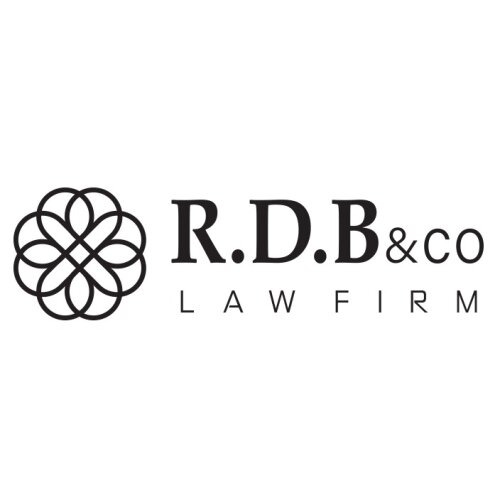Best Merger & Acquisition Lawyers in Petaẖ Tiqwa
Share your needs with us, get contacted by law firms.
Free. Takes 2 min.
List of the best lawyers in Petaẖ Tiqwa, Israel
About Merger & Acquisition Law in Petaẖ Tiqwa, Israel
Merger and Acquisition (M&A) law in Petaẖ Tiqwa, Israel, encompasses the legal requirements and regulations governing the consolidation and restructuring of companies within the jurisdiction. This field of law deals with corporate strategy, financing, and negotiation as businesses combine or are acquired. M&A activities can significantly alter the competitive landscape and require a meticulous approach to legal, financial, and operational due diligence to ensure compliance and successful integration.
Why You May Need a Lawyer
Legal advice is crucial in various M&A scenarios, including:
- Complex Transactions: M&A deals often involve intricate legal and financial arrangements that require expert knowledge.
- Due Diligence: Lawyers conduct due diligence to uncover potential liabilities and ensure compliance with relevant regulations.
- Regulatory Approvals: Navigating the approval process from regulatory bodies can be more manageable with legal assistance.
- Contract Negotiations: Skilled lawyers negotiate terms to protect their client's interests during M&A transactions.
- Dispute Resolution: Legal help is necessary for resolving conflicts that may arise before, during, or after the transaction.
Local Laws Overview
M&A in Petaẖ Tiqwa, Israel, is governed by a combination of local and national laws. Key aspects of these laws include:
- Companies Law: The primary legislation governing corporate activities in Israel, including M&A transactions.
- Antitrust Law: Regulations to prevent anti-competitive actions and ensure fair market practices.
- Securities Law: Requirements for publicly-traded companies engaged in M&A, including disclosures and reporting.
- Tax Considerations: Both local and national tax implications, including capital gains and VAT, need careful evaluation.
- Labor Laws: Compliance with employment regulations when merging or acquiring companies with existing employees.
Frequently Asked Questions
What is due diligence in M&A?
Due diligence involves a thorough investigation into a target company’s business, financial status, and legal obligations to identify any potential risks or liabilities.
How long does an M&A process usually take?
The duration varies but typically ranges from several months to over a year, depending on the complexity of the transaction and regulatory approvals.
What role does the antitrust authority play in M&A?
The Israeli Antitrust Authority reviews M&A transactions to ensure they do not harm competition and comply with fair trade regulations.
Are there specific tax considerations in M&A transactions?
Yes, M&A transactions may involve various tax implications, such as capital gains tax and VAT, which require careful planning and compliance.
Can employees be laid off in an M&A transaction?
Employment laws protect workers, but restructuring and layoffs can occur. Legal advice ensures compliance with labor regulations.
How are cross-border M&A transactions handled?
Cross-border transactions involve additional complexities, including foreign investment regulations, international tax laws, and compliance with multiple jurisdictions.
What is a merger control filing?
A merger control filing is a mandatory submission to regulatory authorities to review the potential competitive effects of an M&A transaction.
What happens if an M&A deal falls through?
Parties may face legal and financial repercussions if a deal falls through, often outlined in preliminary agreements like LOIs or MOUs.
What are the common challenges in M&A transactions?
Challenges include cultural integration, operational restructuring, regulatory compliance, and achieving financial synergies.
How can a lawyer help in negotiating M&A contracts?
A lawyer can draft and negotiate terms to protect client interests, ensure compliance with laws, and facilitate smooth transaction processes.
Additional Resources
For additional support and information, consider the following resources:
- Israel Securities Authority (ISA): For regulations concerning publicly-traded companies.
- Israel Antitrust Authority: For guidance on competition laws and merger approvals.
- Petaẖ Tiqwa Chamber of Commerce: Offers resources and networking opportunities for local businesses.
- Local Law Firms: Specialized M&A legal practices can provide tailored advice and representation.
Next Steps
If you need legal assistance in M&A, consider the following steps:
- Research: Identify reputable local law firms specializing in M&A.
- Consultation: Arrange initial consultations to discuss your needs and assess the lawyer's expertise.
- Engagement: Engage a lawyer who understands your business and has a proven track record in M&A transactions.
- Planning: Work with your lawyer to develop a comprehensive M&A strategy, including due diligence, negotiations, and regulatory filings.
- Execution: Follow through with the legal guidance provided to ensure compliance and successful completion of the transaction.
Seeking legal advice early in the M&A process can help mitigate risks and ensure a smoother transaction. Legal professionals in Petaẖ Tiqwa, Israel, are well-equipped to guide you through every step of the process.
Lawzana helps you find the best lawyers and law firms in Petaẖ Tiqwa through a curated and pre-screened list of qualified legal professionals. Our platform offers rankings and detailed profiles of attorneys and law firms, allowing you to compare based on practice areas, including Merger & Acquisition, experience, and client feedback.
Each profile includes a description of the firm's areas of practice, client reviews, team members and partners, year of establishment, spoken languages, office locations, contact information, social media presence, and any published articles or resources. Most firms on our platform speak English and are experienced in both local and international legal matters.
Get a quote from top-rated law firms in Petaẖ Tiqwa, Israel — quickly, securely, and without unnecessary hassle.
Disclaimer:
The information provided on this page is for general informational purposes only and does not constitute legal advice. While we strive to ensure the accuracy and relevance of the content, legal information may change over time, and interpretations of the law can vary. You should always consult with a qualified legal professional for advice specific to your situation.
We disclaim all liability for actions taken or not taken based on the content of this page. If you believe any information is incorrect or outdated, please contact us, and we will review and update it where appropriate.









